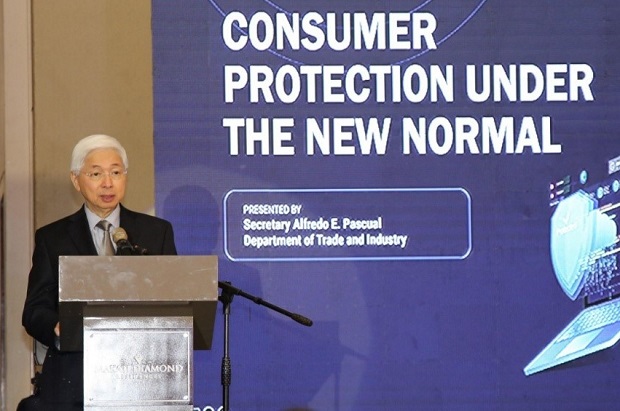The Department of Trade and Industry said on Monday, April 3, that it received a total of 27,947 complaints in 2022, of which 44% or 12,170 pertains to online transactions.

Among these, 2,484 cases were resolved, 9,093 others were endorsed to appropriate government agencies, 394 were withdrawn, and the remaining 199 complainants were issued Certificates to File Action.
The most frequent nature of complaints received were those involving liability for product and service imperfection, deceptive, unfair, or unconscionable sales act or practices, and misleading advertisement and fraudulent sales promotion.
DTI secretary Fred Pascual said globally, from 2019 to 2022, the 80% increase in digital transactions resulted in 80% growth in suspected digital fraud attempts.
In order to build trust among consumers, Pascual said the DTI said it is pushing to have a provision on e-commerce trust mark under the proposed Internet Transaction Act.
According to the DTI E-Commerce Office, this will provide assurance that the e-commerce site is trustworthy, and any issues encountered will be addressed accordingly.
Likewise, it will help MSMEs increase sales, boost their brands, and retain and attract more customers, according to the DTI chief.
During the induction of the officers of the Ad Standards Council’s (ASC) last March 31, Pascual emphasized how the digital age has changed the way government implement consumer protection-related initiatives.
“The pandemic, particularly during the lockdown period, shifted many economic activities from real life to virtual. Consumers have become more familiar with different online shopping platforms. Terms such as “add to cart” and “ipa-Grab mo,” as well as online transaction payments through GCash and Maya have become commonplace for many Filipinos,” said Pascual.
The pandemic has paved the way for the rise of e-commerce, which allowed businesses to operate despite the lockdowns and reach wider markets, he noted.
“In fact, this has also caused other businesses and industries to emerge. Online shopping has become and continues to be a trend in the Philippines,” he said.
However, such boom also has its disadvantages, Pascual observed.
“Consumer protection evolved and has forced the government to intensify its campaign against online scams. As the number of online transactions grew, so did the number of consumer complaints received,” he said.
He elaborated: “The pandemic showed us the potential and significance of e-commerce as an economic recovery catalyst. Unfortunately, as with most things, digital method cuts both ways.”
“I would like to emphasize that the government and private sector must both be proactive and responsive to the changing circumstances of this digitalized world. Together, let us ensure consumer protection in the new normal,” Pascual said.




